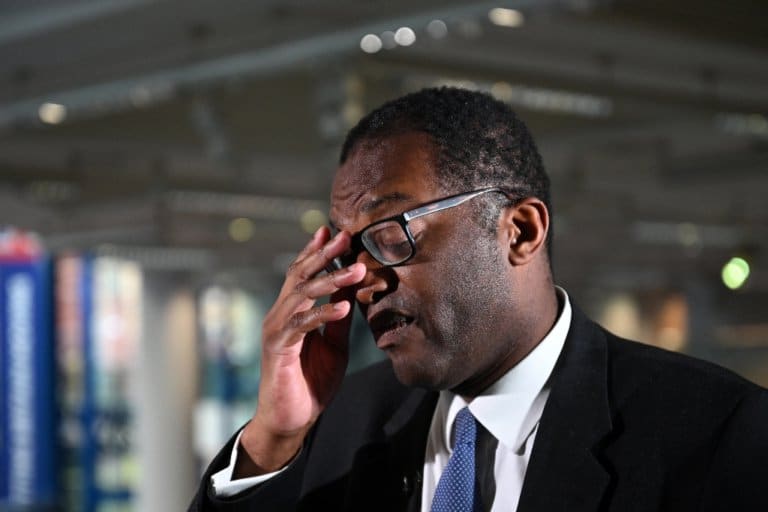
In a world with auto-correct, Google, and apps like Grammarly, spelling has become less important. Still, knowing the most difficult words to spell in English might come in handy.
When writing a resume, a proposal, or a school assignment, a misspelt word can be the difference between getting a job and missing out or getting the marks needed to pass an assignment. Ultimately, it makes you seem more professional and more competent.
Unfortunately, not everyone has the same mastery of the language.
In English, it’s common for words to change their spelling depending on the region in which they are used. It makes navigating the spelling of the most difficult words in English to feel like driving without a map.
Take the word “colonel,” for example. You might expect it to sound as it looks, but no, it’s pronounced as “kernel.” Other words include “kindergarten,” where the “t” is suddenly replaced by a “d,” “subtle,” where it’s pronounced “suh-tuhl,” and “aisle,” which has you questioning where the “a” went.
It goes the other way too; when a word isn’t spelled how it’s pronounced.
Many Reddit users have voiced how they misspell “maintenance” as “maintainence,” simply because of how it’s pronounced. “Recommend” is another — this Reddit user humorously says, “Reccomend, reccommend, recomend…. ugh. It’s a regular ocurrence, and I’m rarely sucesful. Double letters are dificcult.”
English is also often described as a “borrowed” language because it has borrowed words from a wide variety of other languages over its history.
The English language comprises 80% borrowed words from as many as 350 languages worldwide. As a result, a significant portion of English vocabulary comes from other languages.
Here are some borrowed words in English:
- Latin: audio, alma mater, bona fide
- French: adieu, fiancé, bon voyage
- Spanish: siesta, jalapeño, tango
- Italian: soprano, mozzarella, villa
- Arabic: sofa, saffron, tariff
Difficult words to spell in other languages
Difficult words to spell are not limited to just the English language — every language has its own. Here are some examples:
- French: “hippopotomonstrosesquippedaliophobie” which means the fear of long words.
- German: “rindfleischetikettierungsüberwachungsaufgabenübertragungsgesetz” which is a law related to the labelling of beef.
- Spanish: “esternocleidomastoideo” which refers to a muscle in the neck.
- Italian: “precipitevolissimevolmente” which means “very rapidly.”
Many of the most difficult words to spell in English can be so confusing that even professors struggle with them due to their irregularities, complex origins, or infrequent usage.
15 most difficult words to spell in English

An otorhinolaryngologist is a doctor who deals with disorders related to the ears, nose and throat. Source: AFP
1. Otorhinolaryngologist
There is no denying that medical terms are not only the most challenging words to pronounce but also some of the most difficult words to spell.
The words can be extremely long, even for doctors who have been using the words for years.
One word that is commonly misspelt is “otorhinolaryngologist.” The only way to pronounce this word correctly is by breaking it down.
An otorhinolaryngologist is a medical specialist who focuses on diagnosing and treating disorders related to the ears, nose, and throat (ENT).
Otorhinolaryngologists are crucial in managing common ear infections to complex throat disorders.
Just as these professionals navigate intricate anatomical systems, accurately spelling the term showcases an individual’s attention to detail and linguistic skills.
What adds to its complexity? Apart from the silent “h” and the unconventional use of the consonant “y,” the word has 21 letters and nine syllables.
2. Hors d’oeuvre
You might think we’re cheating by putting the word “hors d’oeuvre” on this list, but it really is an English word, even if it was borrowed from French. In its original form, the French “hors d’œuvre” literally translates into “outside the work,” which is taken as “not part of the ordinary set of courses in a meal.”
Now, for those who don’t know what this word even means, a hors d’oeuvre is an appetiser or starter served before a meal in European cuisine. Think of your classic deviled eggs, spring rolls, or skewers — those are hors d’oeuvres.

With autocorrect so easily accessible, most students nowadays have never even used a physical dictionary or thesaurus. Source: AFP
3. Conscientious
Conscientious has two meanings. Its first meaning refers to someone who works thoroughly, and the second relates to someone’s conscience.
The challenging aspect of spelling this word arises from the arrangement of vowels in the middle and at the end of the word.
“Conscientious” is difficult to spell due to its combination of letters and sounds. It has an uncommon sequence of syllables and a variety of consonant combinations that are not often seen in English.
The silent “i” in the middle, sandwiched between two syllables with distinct vowel sounds, adds complexity.
The length and infrequent use of the word also contributes to the challenge of spelling it.
4. Manoeuvre
Manoeuvre refers to a movement that needs skill and care. An example of using the word is: Reversing around a corner is a manoeuvre required to pass a driving test.
People often confuse this word because it is spelt differently in different countries. The spelling manoeuvre is used in Canada and UK, while “maneuver” is used in the US.
“Manoeuvre” is often considered one of the most difficult words to spell in English. The presence of silent letters, like the ‘e’ after ‘u’ and the ‘v’ in the middle, can confuse spellers.
The word sounds different from spelt, making it harder to remember the correct arrangement of letters.
The French origins of this word make it hard to spell accurately. French words often have unique spelling patterns and letters that don’t correspond to their English pronunciation.

Bouillabaisse is a fish stew that originates from France. Source: AFP
5. Bouillabaisse
“Bouillabaisse” is a traditional fish stew from the port city of Marseille in France. This flavourful dish combines fish, shellfish, and aromatic herbs with a tomato-based broth, resulting in a riich and aromatic culinary dish.
Many, however, avoid ordering it as pronouncing “bouillabaisse” is challenging.
Much of this has to do with its unique combination of letters and its French origin. Since the pronunciation does not align with its spelling, it makes things complicated.
6. Playwright
It is no surprise that “playwright” is one of the most difficult words to spell, especially since its pronunciation does not follow its spelling.
A playwright is an artist who creates written works for the theatre, including plays and scripts.
Playwrights can uniquely capture human emotions and societal themes, making them essential contributors to dramatic arts.
When pronounced, the word sounds like “playwrite” and many tend to spell it as “write” instead of “wright.”
“Wright” is defined as a maker or builder.
However, the word is more commonly used as a second element, for example, in playwright, shipwright or wheelwright.
7. Bureaucracy
The term “bureaucracy” refers to an administrative system characterised by hierarchical structures, rules, and regulations that govern the functioning of organisations or government entities.
The pronunciation of “bureaucracy” doesn’t align with its spelling, leading to confusion. It is difficult to spell, and many turn to Google to search for the spelling.
This word contains letter combinations not commonly found in other English words. While the “eau” sound is unusual, it’s also found in the word “beauty.”
8. Connoisseur
A connoisseur refers to someone knowledgeable and with expert taste in many areas, including fine arts, food, or other cultural pursuits.
Connoisseurs have honed their skills through years of study and experience, allowing them to distinguish and evaluate the highest quality within their chosen domain.
However, before you can call yourself a connoisseur, ensure you spell the word correctly.
It comes from the French word “connaitre,” meaning “to know,” emphasising the knowledgeable aspect of the word.
The word contains silent letters, which can be confusing for English speakers. In “connoisseur,” the “n” and “s” are silent, which can make it challenging to spell.

Bill Gates is one of the most well-known entrepreneurs in the world. Source: AFP
9. Entrepreneur
While “entrepreneur” is such a common word, many still struggle to spell it.
Data collected based on Google searches found that 1,600 Americans search the spelling of “entrepreneur” each month, making this one of the most difficult words to spell.
An entrepreneur operates and manages a business, often taking on financial risks in the process.
Originally a French word, the spelling can challenge even the most experienced English speakers.
Since it starts with an ah sound, you may think it includes an “a” and confuse the spelling. While this word does have many vowels, “a” is not one of them.
10. Gobbledygook
“Gobbledygook” is a term used to describe meaningless or nonsensical language that often consists of long, complex, or confusing words and phrases that are difficult to understand.
Usually, it’s used to criticise writing or speech that is convoluted, unclear, or intentionally written to sound impressive without conveying any real meaning.
That said, the word “gobbledygook” is long and difficult to spell.
Breaking down the word into smaller chunks like “go-bble-dee-gook” to learn the right spellings might make it easier to spell.
@gordonramsayofficial How do you probounce Worcestershire Sauce ?? I think @salt hank figured out the best way on @Idiot Sandwich ♬ original sound – Gordon Ramsay
11. Worcester
Yes, the sauce made it onto this list, and you should’ve been expecting it too. Not only is it a hard word to read right, it’s also a hard word to spell.
Pronounced as “wuss-terr,” this sauce is made up of vinegar, molasses, onions, garlic, anchovies, and more, and is a popular condiment as a sauce for stews.
If you’re an international student in the UK, there’s a county near Birmingham named Worcestershire (pronounced as “wuss-terr-shuh” and not “wor-cester-shire” unfortunately). For those in the US, Massachusetts has a city called Worcester for you to check out.
12. Laissez-faire
Originating from French, laissez-faire has two meanings — both of which imply “allow to do.”
First, it can be defined as an economic theory or plan in which a government does not have many laws or rules to control the buying and selling of goods and services. Second, it can mean an unwillingness to get involved in or influence other people’s activities.
As with the other French words that have made it onto this list, laissez-faire is one of the more difficult words to spell, especially if you consider its pronunciation “LAY-zay fair.”
13. Mischievous
The word mischievous means playful in a way that causes minor trouble, harm, or annoyance, often without serious intent.
It comes from the Old French meschever, meaning “to come to grief” or “to mis-carry out.”
While it seems easy to spell, many people misspell it as “mischievious” because they tend to add an extra syllable (“-ee-vee-”) when pronouncing it.
This confusion is what makes it one of the most difficult words to spell in English.
14. Onomatopoeia
Onomatopoeia refers to words that imitate natural sounds, such as buzz, bang, or sizzle.
It comes from the Greek words onoma (name) and poiein (to make), literally meaning “the making of a name or word.”
It is known to be one of the most difficult words to spell in English because of how long it is, its unusual sequence of vowels, and the fact that it doesn’t sound like it looks. It is commonly misspelt as “onomatopia.”
15. Massachusetts
Massachusetts is the name of a US state. It comes from the Algonquin language, meaning “at or about the great hill” or “large hill place,” specifically referring to the Great Blue Hill.
Its unusual sequence of double letters (ss, tt) and the mix of -chu- and -setts, which don’t follow typical English phonetic rules, makes it one of the most difficult words to spell — even people from Massachusetts struggle to spell it.
Disclaimer: This article was last updated on August 28, 2025.










